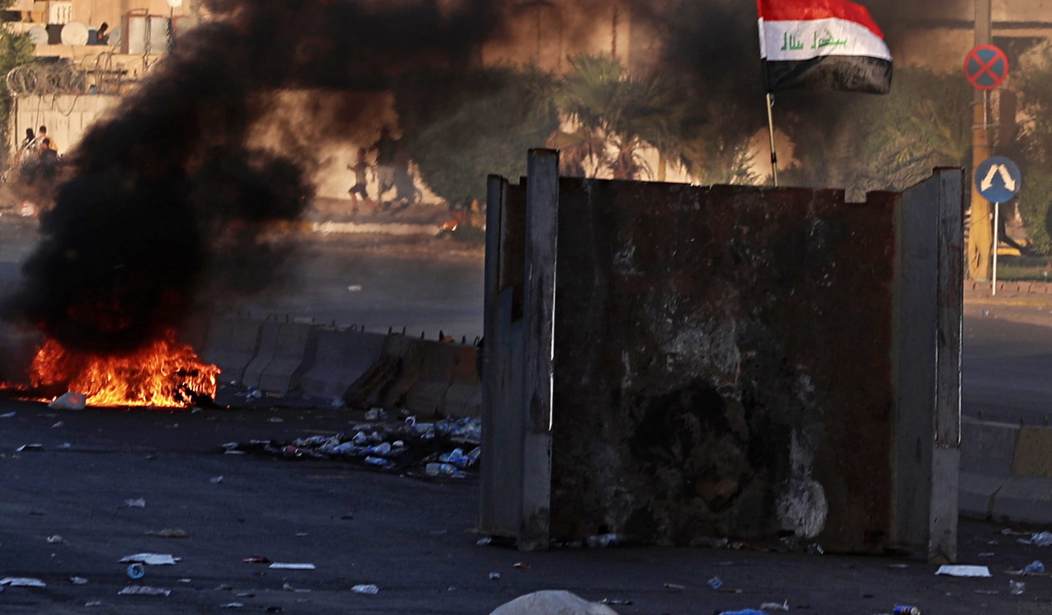Whatever reasons protesters in Iraq originally took to the streets to express their frustration with the government hve now been tossed aside and outright revolution has become their goal.
The demonstrations all across Iraq began last month, triggered by the graft and corruption of the political class. But as many of their number were gunned down in the streets by snipers believed to be a part of the Iranian-controlled Shia militias, the crowds are now demanding nothing less than an overturning of the entire political system, starting with election laws that perpetrate the corruption.
These are Shia kids dying in the street, children of the post-Saddam revolution that saw Shiites go from being second class citizens to dominating the government. But with youth unemployment at 30 percent and intermittent electrical and water service making their lives frustrating and difficult, many of them don’t care what religious sect is in charge, they want change.
But the Shia establishment, in the pocket of the Iranians who control Iraqi policy through them, will not go quietly. They are murdering their own citizens in the streets and the rising body count is a testament to the courage and staying power of the protesters.
Security forces opened fire on protesters in Baghdad and several cities in southern Iraq on Sunday, killing at least nine people and wounding dozens of others, police and medical sources said, the latest violence in weeks of unrest.
Anti-government protests erupted in early October and have swollen into the largest demonstrations since the fall of Saddam Hussein in 2003. A Reuters tally of the dead as given by security and medical sources shows at least 339 people have been killed.
Iraq’s state news agency quoted the health minister on Sunday as saying 111 people had been killed, including protesters and members from security forces, without breaking down the tally or elaborating over what period. It was the first official figure issued by a government official since Oct. 25.
The old Shia religious leader, Grand Ayatollah Ali Sistani, appears to have sided with the protesters and is condemning government forces for the violence.
In an unusually brief sermon on Friday, Grand Ayatollah Ali Sistani repeated his support for the protest movement and urged politicians to prioritise new election laws.
“The marjaiyah stresses the need to work quickly to pass an electoral law and a law on the electoral commission,” said the sermon, read by a representative in the holy city of Karbala.
But the call was met with scepticism from demonstrators, who have sought more robust support from the seat of Shiite religious power in Iraq.
“They’re going too slowly on the government. I call them the silent marjaiyah,” one demonstrator scoffed.
The demonstrator has a point — political reform comes too slowly for those on the firing line. Revolution appears to be the only answer.
The most radical demand is the downfall of the whole sectarian, political Islamist system. This is the first and most important demand in Tahrir Square — they want a separation of religion and politics. This demand includes the government resigning, especially Adil Abdul-Mahdi, the prime minister.
They’re also demanding job opportunities, unemployment insurance, electricity, basic services, an end to the rule of militias, and an end to corruption and foreign rule — especially Iranian rule, but also US rule.
Iraq’s religious divide has been exploited for years by the political class. And this exploitation is enabled by an electoral system that assures the political elites of all sects will maintain control. Getting meaningful change is proving to be difficult as the government appears willing to wait out the protesters, hoping that the rising death toll will send them underground.
As long as protesters seem willing to die, that’s not likely to happen soon.










Join the conversation as a VIP Member